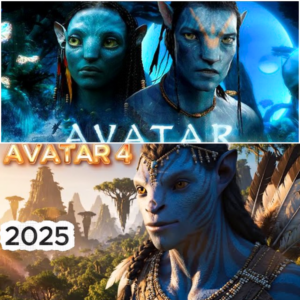When Night Hunter (also known as Nomis) premiered at the LA Film Festival in September 2018, it flew under the radar, overshadowed by bigger blockbusters and hampered by a staggered release. Directed and written by David Raymond, this Canadian psychological thriller boasted an impressive cast—Henry Cavill, Ben Kingsley, Alexandra Daddario, and Stanley Tucci—but received a lukewarm critical response, earning a 14% score on Rotten Tomatoes. Yet, despite its flaws, Night Hunter has found a second life on streaming platforms like Paramount+ and Prime Video, where it recently climbed global charts, reaching #4 on Paramount+ in December 2024. For fans of Henry Cavill, the film offers a rare glimpse into a darker, more introspective side of the actor, far removed from his iconic roles as Superman or Geralt of Rivia. “This gritty psychological thriller showed us a totally different side of Henry Cavill,” a sentiment echoed across fan discussions, as his portrayal of Detective Walter Marshall reveals a raw, vulnerable intensity that underscores his versatility. This 2,000-word exploration delves into Cavill’s transformative performance, the film’s complex narrative, its polarizing reception, and why it resonates with audiences seeking a departure from conventional thrillers.
A Departure from the Heroic Archetype
Henry Cavill’s career has been defined by larger-than-life characters: the noble Superman in the DC Extended Universe, the stoic Geralt in The Witcher, the suave Argylle in Argylle, and the daring Gus March-Phillipps in The Ministry of Ungentlemanly Warfare. These roles showcase his physicality, charisma, and ability to embody heroic archetypes. However, in Night Hunter, Cavill trades his polished exterior for a gritty, emotionally battered persona, stepping into the shoes of Detective Walter Marshall, a Minnesota cop haunted by his pursuit of a serial predator. This role, described by Collider as a “refreshing departure,” allows Cavill to explore psychological turmoil and moral complexity, revealing a side of him that audiences rarely see.
Marshall is not a hero in the traditional sense. He’s a divorced father struggling to connect with his teenage daughter, Faye (Emma Tremblay), and grappling with the emotional toll of his job. Cavill’s portrayal is marked by a brooding intensity, with a lumberjack beard and disheveled appearance that signal a man unraveling. Unlike his action-driven roles, where control is paramount, Marshall is cerebral and tormented, often on the brink of collapse. “Rather than a man of action, this version of Cavill is more introspective, a morally complex individual,” notes Collider, highlighting how he sheds his invulnerable persona to embody a flawed human.
Cavill’s preparation for the role was meticulous. In interviews, he spoke of studying real-life detectives and immersing himself in the psychology of trauma to capture Marshall’s inner conflict. His performance balances stoicism with vulnerability, evident in scenes where he confronts his ex-wife, Angie (Minka Kelly), or pleads with Faye to stay safe online. These moments, though brief, humanize Marshall, making Cavill’s portrayal relatable to audiences familiar with personal sacrifice. For fans accustomed to his heroic swagger, this introspective turn is a revelation, showcasing his ability to convey depth beyond physical prowess.
The Plot: A Twisted Game of Control
Night Hunter begins with a chilling scene: a young woman leaps to her death from a bridge to escape a pursuer, setting the tone for a dark, suspenseful narrative. Detective Marshall, leading the investigation, suspects a serial abductor targeting women in rural Minnesota. The case takes a turn when vigilante Michael Cooper (Ben Kingsley), a former judge, and his ward Lara (Eliana Jones) inadvertently capture Simon Stulls (Brendan Fletcher), a seemingly mentally impaired man linked to the crimes. With Simon in custody, the police, including profiler Rachel Chase (Alexandra Daddario) and Commissioner Harper (Stanley Tucci), believe the threat is contained—until the abductions continue, suggesting a deeper conspiracy.
The film’s central twist—that Simon has a twin brother, Nomis, orchestrating the crimes—divides audiences. While some, like ScreenRant, compare it to classics like Silence of the Lambs and Se7en, others, such as Roger Ebert, criticize its predictability and cluttered plot. The narrative explores themes of control, justice, and morality, questioning whether the pursuit of predators justifies compromising humanity. Cooper’s vigilante methods—using Lara as bait to castrate offenders—contrast with Marshall’s by-the-book approach, creating a moral tug-of-war. Rachel’s psychological profiling adds another layer, though her role is often overshadowed by the male leads.
The film’s pacing and coherence have been points of contention. The Hollywood Reporter calls the plot “overly complicated,” citing references to Se7en and Split that feel derivative. Critics argue that the 98-minute runtime compresses too many ideas, leaving subplots—like Marshall’s family dynamics or Cooper’s backstory—underdeveloped. Yet, for thriller fans, the twists and tension keep it engaging, as evidenced by Reddit discussions praising its “don’t judge a movie by its IMDb score” appeal.
Cavill’s Performance: The Heart of the Film
Despite the film’s flaws, Cavill’s performance is a standout, anchoring the chaotic narrative. His Marshall is a study in contrasts: a gruff, “I’ve-seen-some-things” detective with a soft spot for his daughter. Cavill’s ability to convey this duality is evident in a scene where he interrogates Simon, his stoic demeanor cracking as frustration mounts. “He’s the lead detective, the one with the badge, the gun, the crippling trauma,” writes Collider, noting how Cavill balances authority with vulnerability.
Unlike his action roles, where physicality dominates, Cavill relies on subtle expressions and body language. His furrowed brow and clenched jaw speak volumes about Marshall’s inner turmoil, particularly in scenes with Faye, where guilt over his failed marriage surfaces. A moment where he warns Faye about online predators, only to be rebuffed, captures the helplessness of a father out of his depth. These scenes resonate with audiences, particularly those who value authentic portrayals of emotional struggle.
Cavill’s chemistry with the ensemble enhances his performance. Opposite Kingsley’s intense Cooper, he plays the reluctant ally, their scenes crackling with tension. With Daddario’s Rachel, he shares a professional respect, though the script hints at unexplored romantic potential. Fletcher’s unsettling Simon challenges Cavill to dial up his intensity, resulting in gripping interrogations. CBR praises the “stacked cast,” noting that Cavill’s presence elevates the low-budget thriller, making it a cult classic in the making.
Critics who panned the film often spared Cavill. Empire acknowledges his “definite presence,” while ScreenRant argues the 14% Rotten Tomatoes score undervalues his contribution. Even The Guardian, which calls Night Hunter a “straight-to-video throwback,” praises Cavill’s “manful glowering,” suggesting he carries the film through its absurdity. His ability to make Marshall compelling, despite script limitations, underscores his acting prowess.
Reception: A Polarizing Thriller
Night Hunter’s critical reception is a tale of two extremes. With a 14% Rotten Tomatoes score and 31/100 on Metacritic, it faced harsh reviews. The Times UK’s Kevin Maher called Cavill’s performance “constipated,” criticizing the derivative script. Roger Ebert’s Simon Abrams labeled it “dramatically inert,” faulting its unpleasant characters and lack of complexity. The Telegraph likened it to “Mindhunter given a full-frontal lobotomy,” decrying its tonal inconsistency. These reviews highlight the film’s convoluted plot, uneven pacing, and reliance on clichés.
Yet, audiences have been kinder, giving it a 50% audience score on Rotten Tomatoes and sparking lively discussions on platforms like Reddit. A user on r/MovieSuggestions called it a “prime example of ‘don’t judge a movie by its IMDb score,’” praising Cavill and the cast. ComicBookMovie’s Josh Wilding gave it three stars, lauding its “killer twists” and ensemble. Streaming success on Paramount+ and Prime Video, where it hit top 10 lists in 2024, suggests viewers are drawn to its gritty vibe and Cavill’s star power.
The film’s cult potential lies in its flaws. Like Law Abiding Citizen or Split, it embraces over-the-top twists that thrill fans of B-movie aesthetics. CBR predicts it will become a “cult classic,” citing its reflection of 2010s thriller trends. For Cavill fans, it’s a chance to see him in a role that defies his franchise-heavy resume, a sentiment echoed in fan communities like “The Cavillry.”
Why It Resonates: A Different Side of Cavill
Night Hunter’s appeal lies in its unpolished intensity and Cavill’s departure from typecasting. For audiences tired of predictable blockbusters, it offers a raw, if imperfect, exploration of justice and trauma. Cavill’s Marshall is a far cry from his superhero roles, embodying a man broken by his duty. “He’s simply human,” Collider writes, a quality that connects with viewers seeking authenticity.
The film’s themes—control, morality, and the cost of justice—strike a chord in an era grappling with systemic issues. Marshall’s struggle to protect his daughter mirrors broader anxieties about safety in a digital age. Cooper’s vigilantism, while extreme, taps into public frustration with recidivism, as Kingsley’s character cites inflated statistics about reoffending. These elements, though heavy-handed, invite reflection, particularly for those drawn to psychological thrillers.
Cavill’s performance also signals his versatility at a pivotal career moment. Post-Superman and The Witcher, he’s embraced diverse roles, from Voltron to Warhammer 40,000. Night Hunter, though panned, showcases his willingness to take risks, a trait praised by ScreenRant as evidence of his post-franchise freedom. For fans, it’s a reminder that Cavill is more than a leading man—he’s an actor capable of depth and nuance.
Conclusion: A Flawed Gem Worth Revisiting
Night Hunter is not a perfect film. Its convoluted plot, predictable twists, and rushed pacing frustrate as much as they entertain. Yet, it’s a testament to Henry Cavill’s ability to elevate even flawed material. His portrayal of Walter Marshall—gruff, vulnerable, and achingly human—reveals a side of him that defies his action-hero persona, earning praise as a “refreshing departure.” As the film finds new audiences on streaming platforms, it’s poised to become a cult favorite, a gritty thriller that dares to be messy. For those seeking a different side of Cavill, Night Hunter is a compelling, if imperfect, showcase of his talent. Stream it on Paramount+ or Prime Video to witness a performance that fights to stand out in the shadows.




